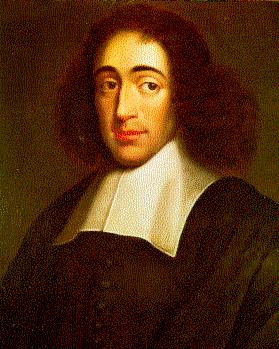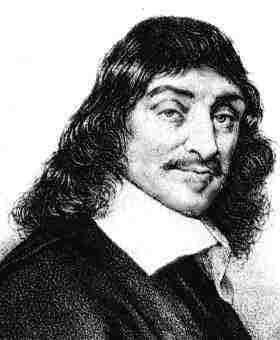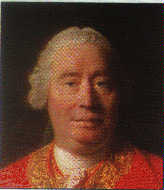







![]()
The Modern Philosophy Graduate Seminar examines significant figures of 17th- and 18th-century philosophy, with emphasis on a careful examination of texts. Although the seminar provides a general overview of philosophic issues of the period, it also focuses on a particular theme. This year's theme centers on the nature of ideas.
Text: Philosophical Classics: Modern Philosophy (3rd ed.,
2000) ed. Walter Kaufmann and Forrest Baird.
| Jan. 14 | Introduction | |
| Jan. 16 | Descartes: method, self | 11-30 |
| (Jan. 21) | (no class: M. L. King holiday) | |
| Jan. 23 | Descartes: God, truth | 30-42 |
| Jan. 28 | Descartes: body-mind | 42-59 |
| Jan. 30 | Hobbes: metaphysics | 60-79 |
| Feb. 4 | Hobbes: political theory | 80-101 |
| Feb. 6 | Malebranche & Arnauld | handouts |
| Feb. 11 | Spinoza: metaphysics | 115-33 |
| Feb. 13 | Spinoza: freedom | 133-50 |
| Feb. 18 | Spinoza: mind | 150-68 |
| Feb. 20 | Locke: ideas, freedom | 169-203 |
| Feb. 25 | Locke: identity, knowledge, God, political theory | 204-41 |
| Feb. 27 | Leibniz: metaphysics | 242-57 |
| Mar. 4 | Leibniz: God, theodicy | 257-79; short paper due |
| Mar. 6 | Leibniz: monadology | 280-88 |
| Mar. 18 | Bayle and Vico | handouts |
| Mar. 20 | Berkeley: abstract ideas | 289 - 305 §15 |
| Mar. 25 | Berkeley: minds, God | 305 §16 - 325 §96 |
| (Mar. 27) | (no class: instructor out of town) | |
| Apr. 1 | Berkeley: space-time | 325 §97 - 341 |
| Apr. 3 | Hume: epistemology | 342-71 |
| Apr. 8 | Hume: causality, liberty | 371-94 |
| Apr. 10 | Hume: miracles, providence | 394-421 |
| Apr. 15 | Hume: God as cause | 421-47 |
| Apr. 17 | Hume: God and evil | 447-75 |
| Apr. 22 | Kant: critique of reason | 487-516, 532-553 |
| Apr. 24 | Kant: logic & self-consciousness | 516-32, 553-71 |
| Apr. 29 | Kant: self, world, God | 571-602 |
| May 8 (Wednesday) | Term paper due in office, 5:00 p.m. |
Office: Bolton 302 B
Office hours: Monday & Wednesday 2:00 - 4:00 p.m.
Phone: 845-5619 (office), 846-4649 (home)
Email: sdaniel@people.tamu.edu
Website: http://people.tamu.edu/~sdaniel/616sy02.html
Seminar Theme
Seventeenth- and eighteenth-century philosophers differ significantly on what they mean by the term "idea," and their differences have generated a good deal of disagreement among historians about how to interpret their texts. Sometimes ideas are understood as mental objects that, using the scholastic distinction, are "objective" realities (in that they represent something beyond themselves) and "formal" realities (in that they are modifications of a mental substance). Other times, ideas (and variations such as thoughts, perceptions, concepts, notions, etc.) are described either as the content of mental acts, intentional objects, "adverbially" differentiated mental activities, or mental events (vs. mental acts). Questions about the ontological and semantic character of ideas thus become questions about mentality, mind, and the strategies or practices used to refer to that which is supposedly extra-mental.
For early modern thinkers, this shift of focus to the practices or assumptions that underlie the discussion of ideas situates the ontological and epistemological characterization of ideas within religious, ethical, and political contexts. So even though some of our readings might not seem to deal with metaphysical or epistemological questions about the nature of ideas, in fact all of them bear on the issue.
Assignments/Presentations/Papers/Grades
At each class meeting a member of the seminar will prepare a 4- to 6-page outline of selected passages from the text and other writings by the philosopher under discussion that shed light on the seminar theme. Each student will lead the discussion twice during the semester. Together, these outline presentations count for 30% of the semester grade.
By mid-semester you will also be responsible for completing a 10-page paper on the nature of ideas as addressed by one of the philosophers studied (another 30% of the final grade). If you want to write on the treatment of ideas by Bacon, Pascal, Condillac, Diderot, Rousseau, Reid, Herder, or any other significant thinker of the era, that is OK as long as you check with me first.
The final term paper will be a more in-depth (20-page) paper on that same topic dealing with a different philosopher than the one addressed in the short paper. For this paper, most students end up writing on a figure for whom they have prepared a presentation, but it is not required that the selected thinker be one that we study studied in class. The final paper is worth 40% of the final grade.

 Send Dr. Daniel a message: sdaniel@people.tamu.edu
Send Dr. Daniel a message: sdaniel@people.tamu.edu

 Go to the Texas A&M Philosophy Home Page
Go to the Texas A&M Philosophy Home Page